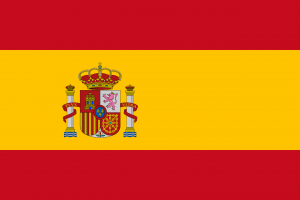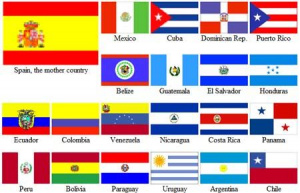Difference between revisions of "Language/Spanish/Grammar/Ser-and-Estar/tr"
m (Quick edit) |
m (Quick edit) |
||
| Line 103: | Line 103: | ||
<span gpt></span> <span model=gpt-3.5-turbo></span> <span temperature=1></span> | <span gpt></span> <span model=gpt-3.5-turbo></span> <span temperature=1></span> | ||
==diğer dersler== | |||
* [[Language/Spanish/Grammar/Demonstrative-Adjectives/tr|Demonstrative Adjectives]] | |||
* [[Language/Spanish/Grammar/Present-Tense-Verbs/tr|Present Tense Verbs]] | |||
* [[Language/Spanish/Grammar/Subject-Pronouns/tr|0'dan A1'e Kadar Tamamlama Dersleri → Gramer → Özne Zamirleri]] | |||
* [[Language/Spanish/Grammar/Reflexive-Verbs/tr|Reflexive Verbs]] | |||
* [[Language/Spanish/Grammar/0-to-A1-Course/tr|0 to A1 Course]] | |||
* [[Language/Spanish/Grammar/Por-vs-Para/tr|Por vs Para]] | |||
* [[Language/Spanish/Grammar/Indirect-Object-Pronouns/tr|0- A1 Seviyesi → Dilbilgisi → Dolaylı Nesne Zamirleri]] | |||
* [[Language/Spanish/Grammar/The-Spanish-Alphabet-and-Pronunciation/tr|0'dan A1'e İspanyolca Kursu → Gramer → İspanyolca Alfabe ve Telaffuz]] | |||
* [[Language/Spanish/Grammar/Descriptive-Adjectives/tr|Descriptive Adjectives]] | |||
* [[Language/Spanish/Grammar/Definite-and-Indefinite-Articles/tr|Definite and Indefinite Articles]] | |||
* [[Language/Spanish/Grammar/Nouns-and-Gender/tr|Nouns and Gender]] | |||
* [[Language/Spanish/Grammar/Direct-Object-Pronouns/tr|Direct Object Pronouns]] | |||
{{Spanish-Page-Bottom}} | {{Spanish-Page-Bottom}} | ||
Revision as of 15:32, 13 May 2023
Nivel 1
La diferencia entre Ser y Estar
En español, "Ser" y "Estar" son los dos verbos más comunes para el significado "to be". Aunque ambos son verbos equivalentes en inglés, en español tienen usos diferentes y no son intercambiables. Es importante entender la diferencia para poder utilizar los verbos de manera adecuada.
"Ser" se utiliza principalmente para describir características esenciales o permanentes de una persona o cosa, es decir, aspectos que no cambian. Mientras tanto, "Estar" se utiliza para describir estados de ánimo, condiciones temporales y localizaciones.
Por ejemplo:
- "Mi padre es alto y guapo" - "My father is tall and handsome"
- "Hoy estoy cansado porque trabajé mucho" - "Today I am tired because I worked a lot"
- "La fiesta está en casa de María" - "The party is at Maria's house"
Conjugación de Ser
Aquí están las conjugaciones del verbo "Ser" en presente, pasado y futuro:
| Español | Pronunciación | Inglés |
|---|---|---|
| Yo soy | jo soy | I am |
| Tú eres | tú eres | You are (singular informal) |
| Él/Ella/Usted es | él/eya/usted es | He/She/You are (masculine, feminine, formal) |
| Nosotros/Nosotras somos | nosotros/nosotras somos | We are (masculine, feminine) |
| Vosotros/Vosotras sois | vosotros/vosotras soyis | You all are (masculine, feminine, informal plural) |
| Ellos/Ellas/Ustedes son | eyos/eyas/ustedes son | They/You all are (masculine, feminine, formal or informal plural) |
Conjugación de Estar
Aquí están las conjugaciones del verbo "Estar" en presente, pasado y futuro:
| Español | Pronunciación | Inglés |
|---|---|---|
| Yo estoy | jo estoy | I am |
| Tú estás | tú estás | You are (singular informal) |
| Él/Ella/Usted está | él/eya/usted está | He/She/You are (masculine, feminine, formal) |
| Nosotros/Nosotras estamos | nosotros/nosotras estamos | We are (masculine, feminine) |
| Vosotros/Vosotras estáis | vosotros/vosotras estoys | You all are (masculine, feminine, informal plural) |
| Ellos/Ellas/Ustedes están | eyos/eyas/ustedes están | They/You all are (masculine, feminine, formal or informal plural) |
Ejemplos en contexto
- "Mi coche es grande y azul" - "My car is big and blue"
- "Estoy enfermo. No puedo ir a la fiesta" - "I am sick. I can't go to the party"
- "El concierto está en el centro de la ciudad" - "The concert is in the city center"
Nivel 1
Ahora que ha aprendido la diferencia entre "Ser" y "Estar", puede practicar con los siguientes ejercicios:
- Elija el verbo correcto en cada oración:
- (Ser/Estar) soy feliz en mi trabajo.
- (Ser/Estar) estamos en la playa.
- (Ser/Estar) eres de Madrid?
- (Ser/Estar) está cansado después de su viaje.
- (Ser/Estar) son mis amigos.
- (Ser/Estar) estoy cansado.
- (Ser/Estar) eres muy inteligente.
- (Ser/Estar) está nublado hoy.
- (Ser/Estar) somos profesores.
- Complete las oraciones con la forma correcta del verbo "Ser" o "Estar":
- Yo _____ de México. (ser/estar)
- Los gatos _____ animales muy independientes. (ser/estar)
- ¿_____ tú enferma? (ser/estar)
- Nosotros _____ muy contentos. (ser/estar)
- ¿Dónde _____ la fiesta? (ser/estar)
- Ana y Luis _____ muy simpáticos. (ser/estar)
diğer dersler
- Demonstrative Adjectives
- Present Tense Verbs
- 0'dan A1'e Kadar Tamamlama Dersleri → Gramer → Özne Zamirleri
- Reflexive Verbs
- 0 to A1 Course
- Por vs Para
- 0- A1 Seviyesi → Dilbilgisi → Dolaylı Nesne Zamirleri
- 0'dan A1'e İspanyolca Kursu → Gramer → İspanyolca Alfabe ve Telaffuz
- Descriptive Adjectives
- Definite and Indefinite Articles
- Nouns and Gender
- Direct Object Pronouns

